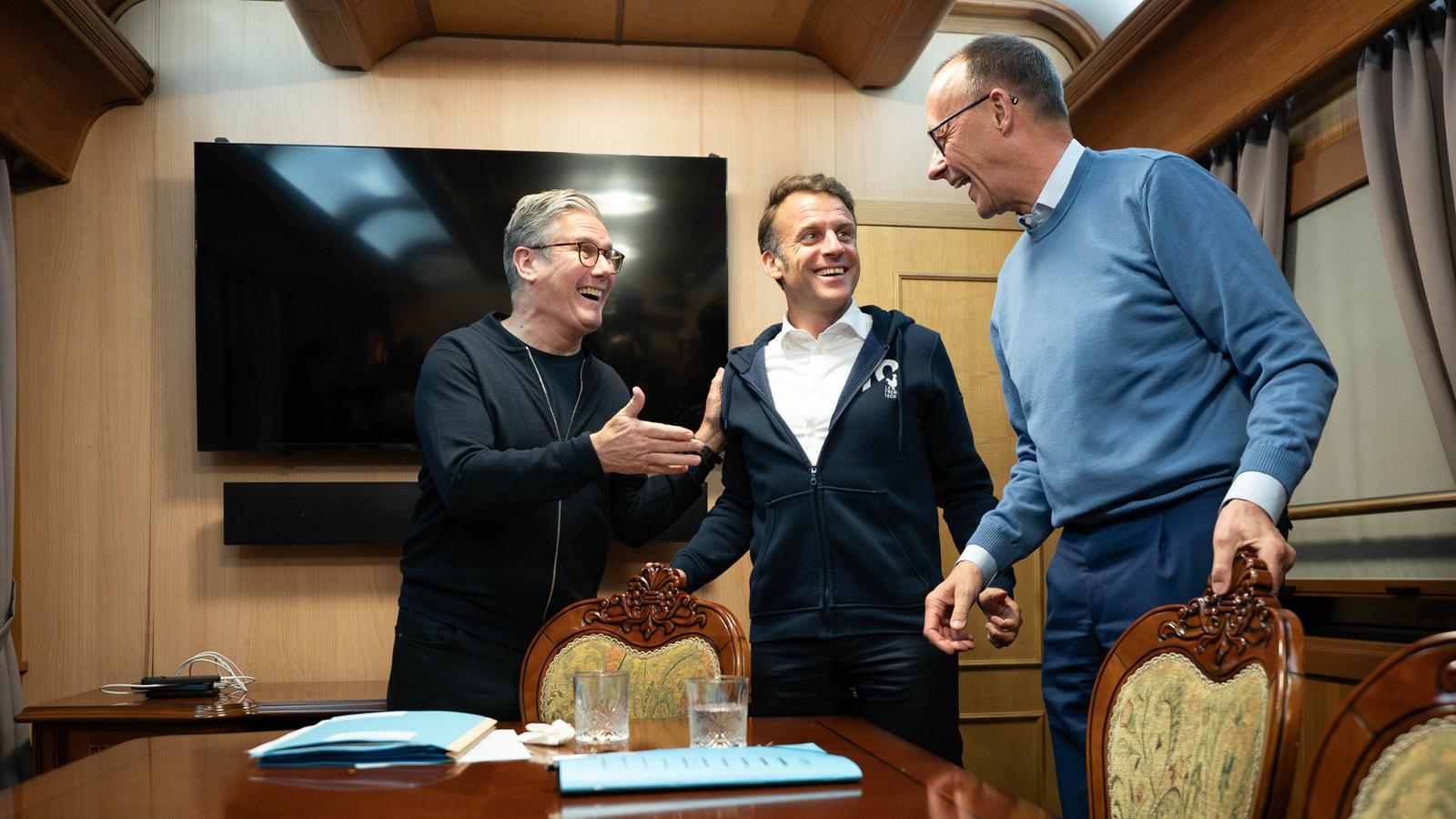Starmer, Macron, and Merz: the brothers in arms watching over Europe?
The United Kingdom, France, and Germany are distancing themselves from the United States to confront the threat from Putin's Russia.


LondonNine years after that The British will vote for BrexitIn the last ten days, the wounds of London's divorce from Paris and Berlin—the main axis on which the European Union historically moved forward—have finally healed. Or almost. Last Thursday, German Chancellor Friedrich Merz, expressed at a press conference in the British capital the proximity of the three leaders – Keir Starmer, Emmanuel Macron and himself – and of the three countries in the following terms: "The United Kingdom, France and Germany are converging in their positions on foreign policy, security policy, migration policy, but also on issues of economic policy." Merz said this on his first visit to London since taking office in May, to sign a "historic" bilateral agreement, the Kensington Treaty, which has the European security architecture as its fundamental core.
Ten weeks earlier, on the same day that Merz was invested by the Bundestag, the French president told him in a message on social media: "Congratulations on your inauguration, dear Chancellor. It's up to us to make the Franco-German engine stronger than ours. It's up to us to accelerate the competitiveness of our, accelerate European competitiveness, our weakness and accelerate European competitiveness. French, for the Germans and for all Europeans."
Three days after Merz took office, Starmer, Macron and the German boarded a train together, bound for Kiev, to express their unwavering solidarity with the Ukrainian president, Volodymyr Zelensky.
France, Germany and the United Kingdom, the so-called E3 – a group minilateralist which began working informally in 2003 to negotiate with Iran over its nuclear program – has been revived. Ukraine and the Russian threat, and the fact that the Donald Trump's United States is increasingly distancing itself from the Old Continent., have made it possible. Macron, with many domestic problems, hoped, and succeeded, that with Merz he could rekindle key ties for the Union and for the Old Continent.
Despite the efforts made with the previous chancellor, Olaf Scholz, the relationship between the two was never "good, and the Franco-German engine of Europe has been running on empty," in the words of Sébastien Maillard, a research associate at the Europe Program at Chatham House in London. The fact that Merz is a Christian Democrat from the Rhineland and a Francophile—he speaks French, as well as English—who has European integration in his political DNA, has been seen as great news by Paris.
A very unusual clause.
Merz's trip to London took place ten days after Macron was also received in the United Kingdom, for a three-day state visit, during which London and Paris will sign the Northwood Declaration, to coordinate their nuclear arsenals, and to declare that an attack on one of the two countries would also constitute an attack on the other. This is the same principle as Article 5 of the Treaty establishing the Atlantic Alliance, which was reiterated in the Kensington Treaty. Furthermore, as Nicolai von Ondarza, also a researcher at Chatham House, points out, the Anglo-German agreement, "unusually for a bilateral treaty, explicitly mentions the objective of intensifying trilateral cooperation between the United Kingdom, Germany, and France."
Cooperation in the military industry—British and German companies are already collaborating in the manufacture of the Eurofighter Typhoon and Boxer armored vehicles—the development of a missile with a range of 2,000 km, and the so-called Coalition of the Willing, which leads the Paris-London axis, are the symbols and champions of a European defense that implies not taking a single step backward in Ukraine.
The three major European powers are now linked through their respective bilateral treaties. But, as Von Ondarza points out, "to become a central pillar of European security, the E3 format must be extended to Poland and other European partners within NATO and the EU." Not surprisingly, at Thursday's press conference in London, Merz made a point of reminding everyone that the E3 is not "exclusive" and is open to other countries on the Old Continent. In fact, Polish Prime Minister Donald Tusk joined the aforementioned trip to Kiev by Macron, Starmer and Merz in early May.
Europe is rearming, paying the bill it no longer wants to pay to the United States and putting its welfare state at risk, as is happening in France, with 40 billion cuts announced this weekAnd amidst the new global disorder, the far right finds fertile ground to continue making inroads.
